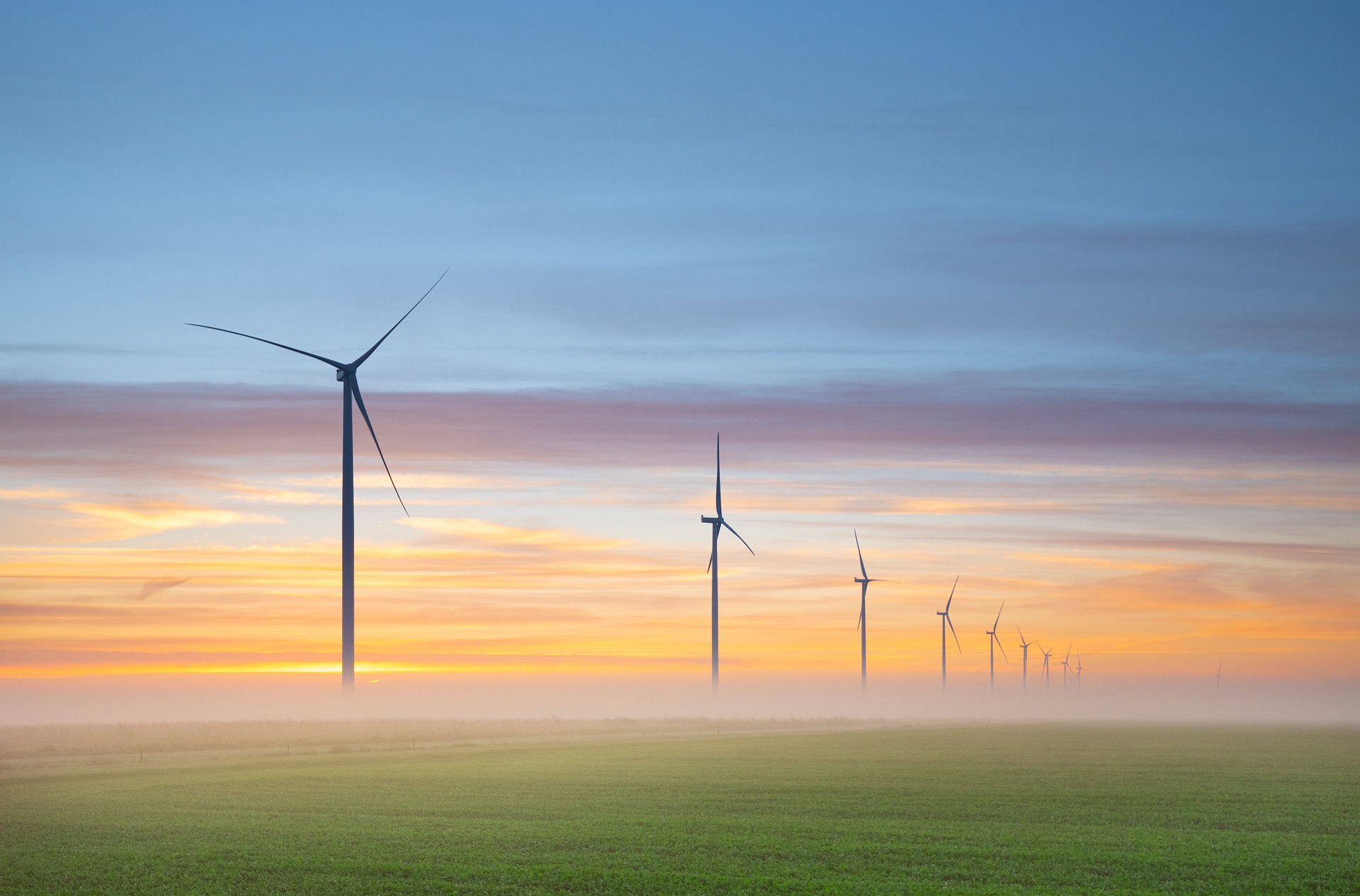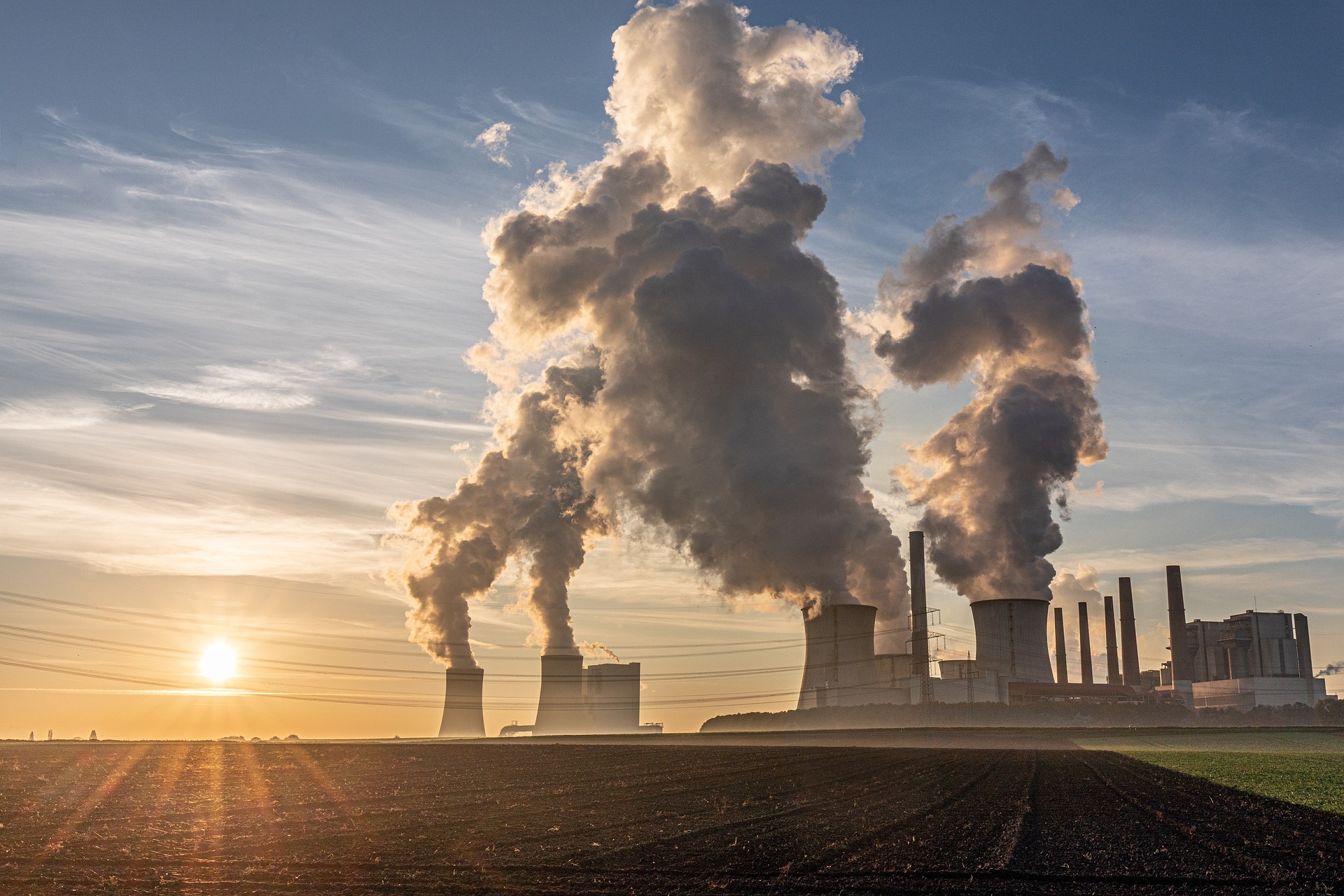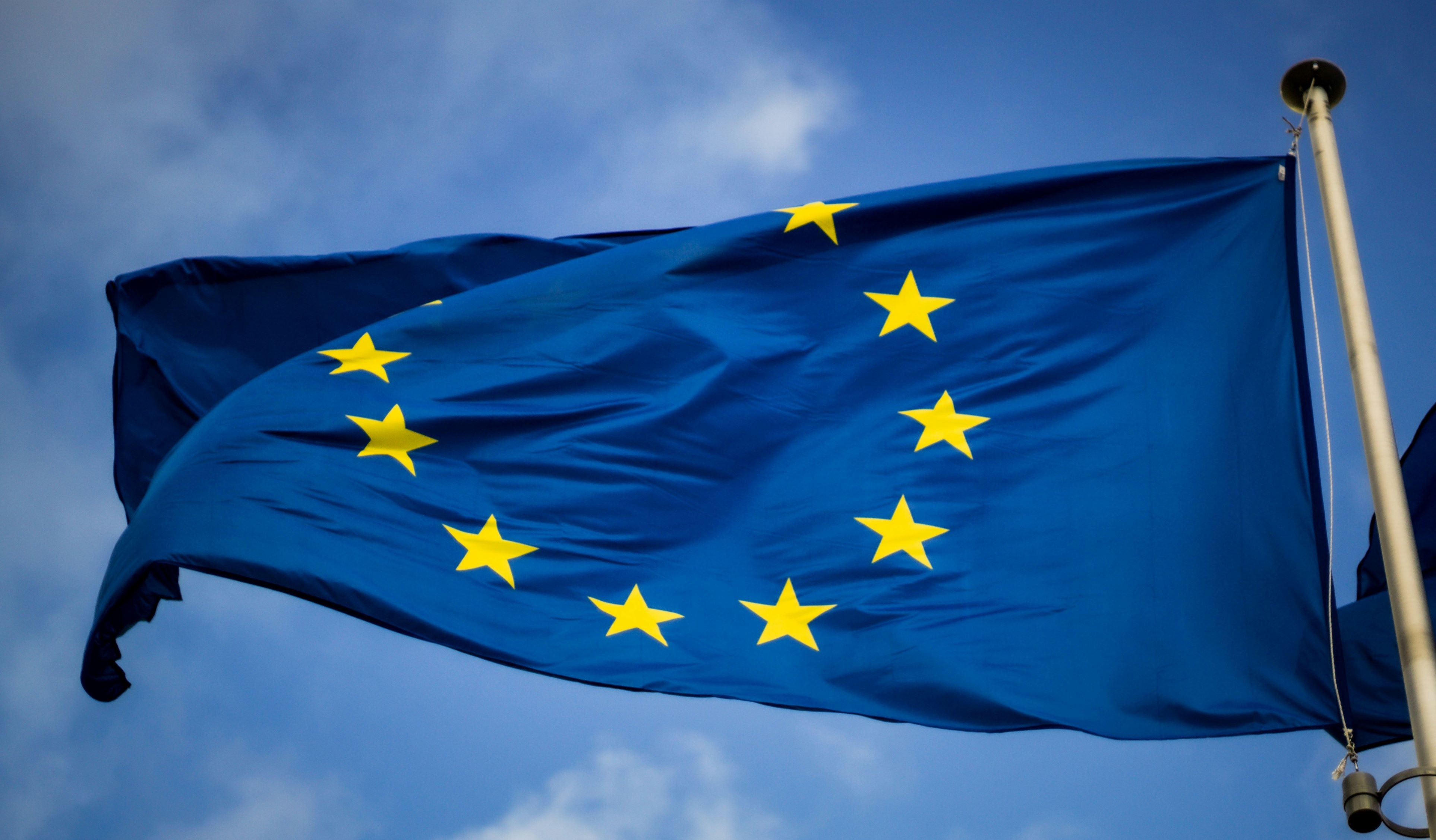We are glad to see signs that the EU Commission and other key bodies are recognising the need and value for more comprehensive monitoring, to ensure the implementation of Europe’s climate transition can be tracked and steered with focused, fact-based insights. We hope ECNO’s findings help the newly formed Parliament and Commission to accelerate the necessary climate agenda in this new legislative cycle to ensure we get on track for 2050.
Eike Karola Velten, lead author of the report and Senior Fellow at Ecologic Institute, one of ECNO’s consortium members
Key action areas for the new EU legislative cycle
To harness the benefits of the green transition, ECNO’s report outlines the following key action areas for focus under the new legislative cycle:
- Accelerate the industrial transition as part of an EU competitiveness deal, with a focus on circularity, energy efficiency and zero carbon energy carriers, as well as the necessary infrastructure; ensure funding mechanisms to help companies overcome financial obstacles to investment in green technologies.
- Ensure no one is left behind by further developing job opportunities and adequate training programmes, engage citizens in decision-making processes, and ensure people have access to sustainable lifestyle options and infrastructure.
- Make buildings renovation schemes more accessible and affordable with supportive policy instruments tailored to people’s needs, including addressing the financial barriers faced by low-income, vulnerable and renting households through subsidies.
- Shift public funds under the Common Agricultural Policy (CAP) to better support the majority of farmers, encourage low-emission and climate resilient agriculture. Take action on food waste and improve sustainability labelling to support healthier, plant-based diets. Make healthy food options affordable and readily available.
- Expand and promote forest restoration, sustainable forest management and reforestation with a shift towards near natural forests.
- Electrify high-mileage corporate fleets, expand the availability of and access to cross-border public transport, and support Member States in their national incentive schemes and in infrastructure to bring down road traffic volumes.
- Develop a multiannual climate action financing plan, building on existing carbon pricing systems, public finance schemes, and financial regulations to facilitate the effective coordination of public and private funding, and providing information on EU funds allocation for the next Multiannual Financial Framework (MFF) for 2028 to 2034. Support Member States in developing action plans for phasing-out fossil fuel subsidies while addressing energy poverty and energy security risks.
- Advance national implementation of agreed policies across all building blocks, with the EU supporting Member States and stricter follow-up to ensure adherence.
Key signs of progress
Electricity and clean technology are moving closer to being on track, but progress remains too slow for now.
Markus Hagemann, NewClimate Institute and ECNO expert, said: “The EU has taken major steps to speed up the transformation of the power sector in the aftermath of the Russian invasion of Ukraine, with a massive drive in solar and, to a lesser degree, in wind, yielding progress in decarbonising electricity. The EU has also agreed a number of policies to enable the power sector transition towards a system dominated by renewable electricity. However, growth in the share of variable renewable electricity still needs to speed up by 1.4 times to be in line with the 2030 climate target, which could be achieved with faster wind deployment. The phaseout of fossil fuels must proceed 1.8 times faster, with the phaseout of gas in particular lagging behind.”
Aneta Stefańczyk, Analyst at Reform Institute and an ECNO expert, said: “Greening industry has seen significant advancements, with a near-doubling in the pace of reductions of industrial greenhouse gas emissions compared to last year’s assessment. However progress in developing a more circular economy, increasing energy efficiency, and building out the necessary infrastructure still lags behind the necessary speed, meaning the overall pace of progress in industry is still far too slow.”
Promisingly, the latest data shows an increase in annual public funding for environmental and energy Research and Development into cleantech, putting the spurring of innovation in technologies critical for decarbonisation on track.
Ciarán Humphreys, Research Fellow at the Institute for Climate Economics and ECNO expert said: “Strong policy signals from the passage of the Net Zero Industry and Critical Raw Materials Acts have given investors confidence that the EU is committed to building a resilient supply chain for its cleantech ecosystem, and should spur private investment which had plateaued in the latest data. Meanwhile, annual public funding for environmental and energy research and development is now moving at a sufficient pace.”
There are also signs of small but important improvements in the just transition, particularly in terms of reducing poverty in coal and heavy-industry regions and creating job opportunities.
ECNO expert Aneta Stefańczyk said: “The climate transition is spurring job creation in the EU, with over 1.7 million people now working in the environmental goods and services sector. The employment rate in regions most affected by the transition is not only the highest on record in 2022, but also on track with the target from the European Pillar of Social Rights Action Plan, growing at a pace of 0.5%-points per year. The data also showed that the negative impacts of the fossil energy crisis did not fully reverse the progress achieved in the fight with poverty and material deprivation in the EU in the previous years, with carbon-intensive regions showing encouraging signs of resilience.”
Governance remains the only building block on track in this year’s report, despite the inclusion of additional indicators.
Nick Evans, Research Fellow at Ecologic and an ECNO expert, said: “The expanded set of indicators supports that the systems of climate governance are developing at the right pace, while public awareness of climate change and support for EU climate neutrality remained high at 83% in 2023. However, evidence points to crucial weaknesses in the national level implementation of key governance processes.”
Despite these promising indicators, the transition is still heading in the wrong direction in key areas. Transition financing and carbon-dioxide removal are flagged as areas urgently in need of a U-turn as the emergency response to the fossil energy crisis and the continued lack of attention to forest carbon sinks continue to see these key enablers of climate neutrality head in the wrong direction.
Clara Calipel, Research Fellow at the Institute for Climate Economics and ECNO expert, said: “Annual investment for the transition needs to double, with the shortfall standing at EU 406 billion in 2022 for the energy, buildings and transport sectors alone. The data also shows the need for an urgent U-turn on fossil fuel subsidies, which almost tripled between 2021 and 2022 to reach EU 190 billion amid the fossil energy crisis.”
Jonathan Gardiner, Researcher at Ecologic Institute and ECNO expert, said: “Depletion of natural carbon sinks continued, and a U-turn is needed to get on track, with the amount of carbon stored in trees decreasing at a rate of -5.9 megatons per year over the past five years. Forests are crucial carbon sinks, but they are under severe pressure from droughts and increasing demand for wood. Near-natural forests can enhance resilience, support biodiversity, and allow for sustainable wood harvesting. Given the EU's limited role in regulating forest practices, it is essential to raise awareness of sustainable forest management and help countries to achieve their natural sink targets. Technical removal options, such as biomass carbon capture and storage (BECCS) or direct air capture and storage (DACS), have not been deployed at scale in the EU yet. These technologies are also yet to demonstrate sustainable application as they can put pressure on land, water, and biodiversity.”
The buildings and transport sectors have seen the passage of relevant policy packages, but these are not sufficient to incentivise the speed of deep building renovations needed, and while the EU has set some of the most ambitious emission standards for cars globally, the pace of progress in electric vehicle deployment still falls significantly short. Both sectors also have significant blind spots, in terms of action to measure and limit embodied emissions from the renovation of existing buildings, as well as in managing and shifting away from road transport, which have seen at best only slight policy developments.
Simon Lalieu, Energy and Climate change consultant at CLIMACT and ECNO expert, said: "Despite recent updates, targets and policies aimed at the renovation of buildings, and in particular deep renovation, are insufficient at EU level. The latest data does not show sufficient improvement in the energy efficiency of buildings, nor in the deployment of heat pumps or the shift towards renewable energies. Targets need to be more ambitious, and must be accompanied by concrete implementation policies, as well as renovation financing policies to remove the financial barriers faced by low-income, vulnerable and renting households.”
Finn Hossfeld, Climate Policy Analyst at the NewClimate Institute and ECNO expert, said: “The EU's policy push towards electric vehicles is already showing promising signs due to more stringent emission performance standards for both light and heavy duty vehicles, which will only allow for the sale of zero emission cars and vans as of 2035. However, progress varies across Member States, and there is a risk of backtracking on the landmark agreements on phasing out the sale of Internal Combustion Engines (ICEs). The EU should do more to ensure the affordability of and access to electric vehicles and recharging infrastructure, while adopting proposals, such as the Trans-European Transport Network (TEN-T), to enable and incentivise shifts towards public and active mobility.”
Concerted policy action is also needed to get progress on track in the areas of agrifood, as well as in external action, lifestyles and adaptation, which are all currently moving far too slowly to meet targets.
Paula Schöberlein, Researcher at Ecologic Institute and ECNO expert, said: “We see encouraging signs of the diffusion of climate-friendly habits and a higher awareness in society of the need for climate action. However, our ability to properly monitor progress is hampered by limited data. Without an EU strategy to promote sustainable lifestyles, the average carbon footprint of EU citizens remains worryingly high, exacerbated by increased material consumption."
ECNO expert Finn Hossfeld said: “European citizens are increasingly shifting towards healthier, more environmentally sustainable diets. The EU's Farm to Fork Strategy lays out policy actions that can leverage this trend. However, most of the proposed measures have not been implemented. Further delaying progress is the revised CAP, the EU’s main subsidy scheme for the agrifood sector, which continues to incentivise emissions-intensive, industrialised agriculture, and, in doing so, hinders a socially just transition for EU farmers.”
Lukas Kahlen, Research expert at the NewClimate Institute and ECNO expert, said:
“Although there has been small progress on delivering on its climate finance commitments, the EU is moving far too slowly in its role to advance global climate action and needs to accelerate its efforts. To reinforce its commitment to financing clean projects abroad, progress can be made through transforming the European Investment Bank by phasing out fossil fuel financing, supporting renewable energy and climate resilience projects, as well as continuing to implement mutually beneficial climate partnerships.“
ECNO analyses draw on the latest official data, currently mainly up to 2022, a year in which several key policies to implement the European Green Deal were under negotiation, and Russia’s full-scale invasion of Ukraine triggered a global crisis in fossil energy prices and a rise in the cost of living.
The report also points to persistent gaps in data availability and the lack of official benchmarks, in particular in areas such as lifestyle and adaptation, which are hindering holistic progress monitoring and the EU’s ability to make informed policy interventions.
Even though the EU acknowledges that more detailed and regular monitoring of the enablers of emission reductions is needed to drive an effective and efficient transition, the Union’s official reporting still offers no systematic assessment of progress beyond overall greenhouse gas emissions trends.
Composed of some of Europe’s leading research organisations, with expertise spanning the fields of climate policy, governance, economics and finance, ECNO aims to help the EU achieve climate neutrality by providing scientifically rigorous analysis of economy-wide progress and an impartial check on EU climate policy processes.
As an independent observatory, ECNO seeks to inspire the uptake of better monitoring practices and policy making, as well as greater transparency on the EU’s transition to climate neutrality by presenting a comprehensive picture of the whole economy.






